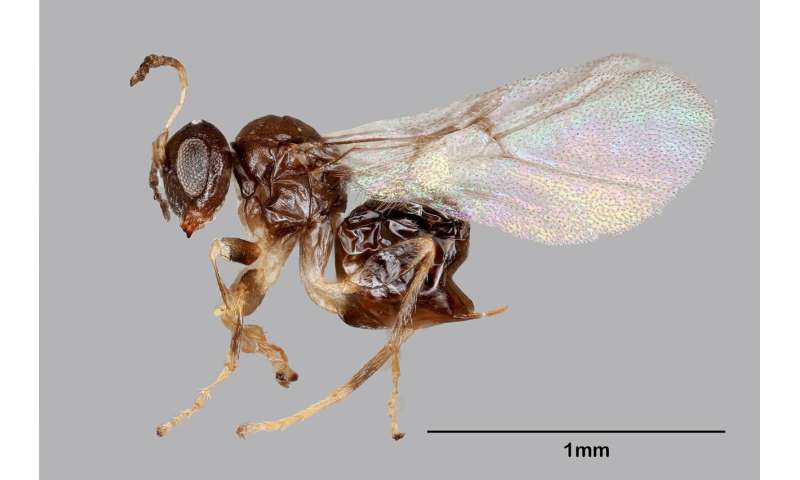Best of Last Week – New insect species, an ultra-fast 3D printer, link between vitamin D and autoimmune disease

It was a good week for the biological sciences as an international team of researchers found that the SARS-CoV-2 spike protein activates human endogenous retroviruses in blood cells, possibly explaining many of the commonly observed pathogenic features of the virus. And a team with members from several institutions in the U.S. conducted a study that called into question the importance of meat eating in shaping human evolution—they suggest that evidence has been overstated. Also, a team at Rice University discovered a new insect species they named Neuroterus Valhalla. It is a type of non-stinging wasp.
In technology news, a group at Technical University of Denmark invented a new, ultra-fast 3D printer that works like a reverse scanner. It combines the principles of a CT scanner with light modeling of materials. And a team at Johns Hopkins University designed and built a smart tissue autonomous robot that performed the first-ever laparoscopic surgery without human help on a pig. Also, a team at TCS Research developed a model that can create realistic animations of talking faces. They suggest it could be used to create more convincing virtual avatars, digital assistants and animated movies. And a team from MIT's Computer Science and Artificial Intelligence group developed a new language for quantum computing.
In other news, a team at the University of Michigan Health Rogel Cancer Center found that pancreatic cancer cells feed on hyaluronic acid, possibly leading to improved treatments for one of the deadliest forms of cancer. And Michael Simkin, a Harvard mathematician, answered a 150-year-old chess problem. He found that there are approximately 0.143nn ways that queens can be placed so none are attacking each other on a giant n-by-n chessboard.
And finally, a combined team from Harvard T.H. Chan School of Public Health and Brigham and Women's Hospital, Harvard Medical School, found that taking vitamin D supplements, whether containing Omega-3s or not, decreased the risk of autoimmune disease.
© 2022 Science X Network